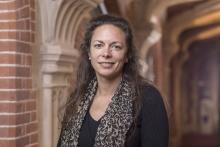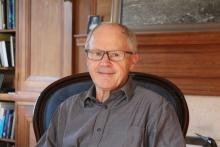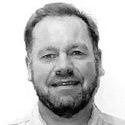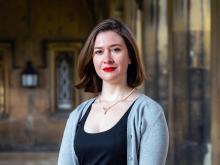Archaeology
St John's has a thriving and dynamic community of undergraduate students, postgraduate students, and Fellows whose interests and expertise span the breadth of Archaeology from the deep past to modern identity politics and archaeological science, Ancient Languages (Egyptology and Assyriology), Biological Anthropology (the study of human and non-human primate evolution, biology and behaviour) and Heritage studies.
Continuing a long and eminent history of Archaeology at St John’s, our Fellows and graduate students are at the forefront of research across such diverse areas as:
- Neanderthal notions of death and their relationship to our own species (how different were they from us?);
- the ‘forgotten Etruscans’ of the countryside;
- evidence for health and infectious disease in medieval Britain from ancient DNA;
- how female social identity was constructed in the Eastern Zhou Dynast;
- use of food plants and human-environment interactions among the earliest peoples of Australia, New Guinea and Island South East Asia.
We have close links with colleagues in related disciplines such as Social Anthropology, Classics and Natural Sciences and support students and their interests across the full breadth of the Archaeology Tripos.
With the Department of Archaeology and the McDonald Institute for Archaeological Research, Cambridge is one of the largest centres of archaeological research in Britain. Archaeology students at Cambridge benefit from direct hands-on access to world-class artefact collections in Cambridge’s many museums, libraries, and research centres, as well as the various scientific laboratories and research facilities within the Department. Through a range of grants to which St John’s students are eligible to apply, the College is proud to be able to support our students in gaining practical experience in the field as well as their academic studies.
Entry Details
Typical Minimum Entry Requirements
A Level: A*AA
International Baccalaureate: 42 points, with 776 at Higher Level
Essential Subjects: None
Desirable Subjects: Any combination of subjects, which could include arts, humanities, sciences or social sciences.
Submitted Work: Applicants are required to submit one piece of written work. This should be in essay format (not science coursework or a timed exam) with a word limit of up to 1500 words. The work can be extracted from an EPQ.
Admissions Assessment (Cambridge College registered): All applicants will take a 60 minute written assessment, based on the reading of material that we will supply. This hour-long assessment is designed to assess the ability to interpret texts and to write, and no special preparation or prior knowledge is required at any stage of the application process. More information can be found on the University’s webpage for Admissions Assessments.
Admissions Interviews
Archaeology spans a very broad subject area, and the course allows study of topics ranging across the humanities, the social sciences and the sciences. Those who are invited to attend for interview will have one interview at St John's with the Director of Studies and one or two Fellows in Archaeology lasting approximately 35 minutes. Archaeology is a very broad discipline, so we don’t expect you to have read specific books or articles. However, we do expect that you will have explored aspects of the subject that interest you most through your own reading, using online resources, and/or by other means, for example visiting relevant museums or sites or attending outreach events. You will find some suggested books, articles, videos and vlogs in the Department of Archaeology’s reading and resource list and details of outreach events organised by the Department of Archaeology on the Department’s website.
Interview questions might explore what sparked your interest in Archaeology, which area of the field particularly interests you and why, and/or things that you mention in your personal statement. We might also show you an archaeological artefact or data (or images of them) as a starting point for discussion. If shown images or objects, we do not expect you to be able to identify them to a specific period or culture, or to have any prior knowledge about them. In fact, the idea is that you won’t be familiar with them already, so we can see what you observe and your own ideas you have about how we might approach studying that item, or what it might be able to tell us about the past.
People
Director of Studies
Dr Alastair Key
Tutor
Dr Victoria Harvey



